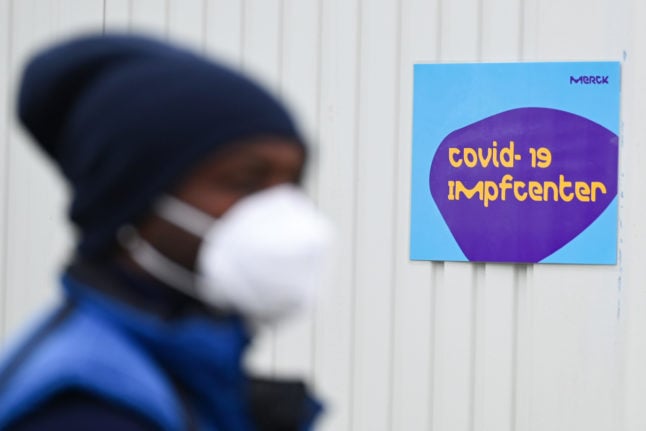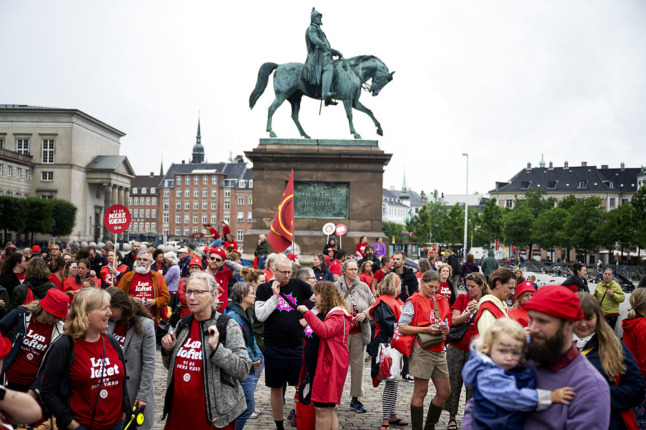On Wednesday May 5th, Germany delivered 1.092 million jabs to people, giving another huge boost to the rollout.
A week ago, Germany smashed a European record by giving out 1.1 million jabs.
READ ALSO: Germany breaks European card by giving a million Covid jabs in a day
So far only China, India and the United States have so far been able to top that daily inoculation rate. In Europe, Britain had previously held the highest number of jabs in 24 hours – with 874,000 doses given on March 20th.
Journalist for German daily Welt Olaf Gersemann, who has been monitoring the vaccine situation closely, said last week’s record could still be broken if states submit any late reports.
🚀 Bämm! 🚀
1.092.765 #Corona-Impfungen wurden gestern in 🇩🇪 gemeldet.
Durch Nachmeldungen könnte noch das am vorigen Mittwoch aufgestellte Allzeithoch erreicht werden.@welt pic.twitter.com/7gjk9e2IJj
— Olaf Gersemann (@OlafGersemann) May 6, 2021
In total 30.6 percent of the German population – 25.4 million residents have received at least one jab against coronavirus since the campaign began at the end of December 2020. A total of 8.6 percent of residents – about 7.1 million people – are fully inoculated.
In comparison, the UK hit the 30 percent target about two months ago on March 1st, and the US hit that milestone on April 2nd.
Health Minister Jens Spahn announced the news on Twitter. He also said Germany also broke a “very important” daily record for the number of second doses given out, which amounted to 200,000 jabs.
Zum zweiten Mal 7-stellig: Mit knapp 1,1 Mio Impfungen gestern sind nun über 25,4 Mio Deutsche (30,6%) erstgeimpft, 7,1 Mio (8,6%) haben einen vollen Impfschutz. Und mit über 200.000 Impfungen ein Tagesrekord bei den so wichtigen Zweitimpfungen.
— Jens Spahn (@jensspahn) May 6, 2021
Slow start but massive improvements
Up to and including May 5th, a total of 32,596,999 vaccine doses have been administered in Germany. Of these, 25,882,244 doses were injected in vaccination centers and 6,714,755 in medical practices.
Since family doctors were given the green light to carry out vaccinations after Easter, the daily number of jabs has increased massively.
Germany’s campaign got off to a slow start, which was put down to EU-wide supply issues for vaccines, as well as bureaucratic hurdles – perhaps caused by different state procedures – and the inflexible vaccination priority list.
However, the rate of vaccinations has picked up in the last few weeks, giving hope of a momentum that will continue as the third wave begins to ease.
READ ALSO: Bavaria plans vaccines in supermarkets, schools and pharmacies
Chancellor Angela Merkel confirmed last week that Germany plans to lift the priority list in June “at the latest” so every adult will be able to make an appointment then.
Germany is also pushing through a law that will see fully vaccinated people and those who’ve recovered from Covid face fewer Covid rules.
Some states have already started easing rules for those who have been inoculated, for example by taking away the obligation to present a Covid-19 test before visiting a hairdresser.



 Please whitelist us to continue reading.
Please whitelist us to continue reading.
Member comments